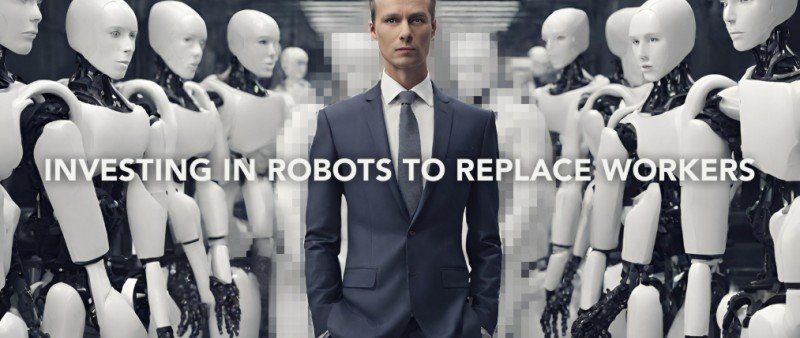The decision of wealthy individuals and companies to invest in robots to replace workers can be influenced by several factors, including economic, technological, and strategic considerations.
Efficiency and Cost Savings: The Robotics Revolution
The allure of increased efficiency in production processes and reduced labor costs is a driving force behind the surge in investments in robotics. Businesses, driven by the promise of higher profit margins, are leveraging automation to stay competitive in the market. Imagine a factory where precision and speed are not limited by human capabilities, leading to products rolling off the assembly line with unprecedented efficiency.
Long-Term Strategic Goals: Resilience in the Technological Landscape
Investments in automation align with long-term strategic goals, fostering resilience and adaptability in a rapidly changing technological landscape. By minimizing reliance on human labor, companies aim to create agile and flexible production systems capable of withstanding unforeseen challenges. This strategic foresight positions businesses to thrive in an era defined by technological evolution.
Capital Accumulation: A Capitalist Perspective
From a capitalist perspective, the pursuit of capital accumulation drives investments in automation. The ability to amass capital through increased productivity and reduced labor expenses becomes a cornerstone of wealth creation for investors and business owners alike. The robot-driven production line becomes a symbol of capital growth within the capitalist framework.

Image above: Robots tired of working. Copyright wittystore.com
Shift in Consumption Patterns: Adapting to a New Economic Reality
Automation not only displaces jobs but also reshapes consumption patterns. As goods and services become more efficiently produced, the cost dynamics shift, influencing consumer behavior and demand. The ripple effect of automation extends beyond the factory floor, impacting the very fabric of our economic landscape.
Capitalism and Economic Systems: Navigating Ethical Crossroads
The relationship between automation, capitalism, and economic systems is intricate. While profit motives drive technological advancements, the ethical implications of widespread job displacement and income inequality pose significant societal challenges. Striking a balance between capital growth and societal well-being becomes a crucial consideration within the capitalist framework.
Geopolitical and Security Considerations: Speculating on the Future
The potential impact of automation on power dynamics, geopolitics, and security is a subject of speculation and analysis. Advanced technology, including robotics, could play a pivotal role in shaping international relations. While speculative, these considerations highlight the broader geopolitical implications of the AI and robotics revolution.
Debate on the Future of Production and Consumption: Shaping Societal Well-being
The ongoing debate at the intersection of automation, capitalism, and the future of production raises fundamental questions. What is the purpose of production in a world influenced by advanced technology? How can wealth distribution align with societal well-being? These questions underscore the need for a thoughtful and balanced approach to the integration of AI and robotics into our economic systems.

Image above: AI driven robots working in a factory without humans. Copyright wittystore.com
In Conclusion: Navigating the AI Revolution
The decision to invest in robots to replace workers is a multifaceted journey involving economic, strategic, and societal considerations. As we navigate the AI revolution, it is imperative to strike a balance that harnesses the benefits of advanced technology while addressing the ethical and societal challenges it presents. The future of work is evolving, and our choices today will shape the landscape for generations to come.
Author: Emmanuel Wynn
Sources:
Brynjolfsson, E., & McAfee, A. (2014). The Second Machine Age: Work, Progress, and Prosperity in a Time of Brilliant Technologies.
W. W. Norton & Company. Acemoglu, D., & Restrepo, P. (2018). Artificial Intelligence, Automation and Work. NBER Working Paper.
World Economic Forum. (2018). Shaping the Future of Consumption: A Transformation in Progress.
Piketty, T. (2014). Capital in the Twenty-First Century. Belknap Press.
The Economist Intelligence Unit. (2018). Geopolitics and Technology: Navigating the World in the Age of AI.
World Economic Forum. (2020). The Future of Jobs Report 2020.
Foxbusiness.com (2024) Elon Musk says to expect roughly 1 billion humanoid robots in 2040s
Boston Dynamics website (2024)






